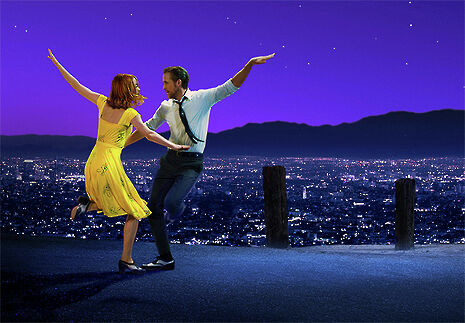Film: BFI London Film Festival
Jacob Osborne shares his experience of this year’s London Film Festival, which included viewings of upcoming international cinematic releases

For the past two weekends I’ve travelled down to London to experience what has turned out to be a highlight of my year – the BFI London Film Festival (LFF). Celebrating its 60th anniversary this year, the festival is a chance to explore the very best of contemporary (and recently restored) film, with 248 features shown over 12 days. It’s also an opportunity to explore London’s many cinemas, from the booming sound of the Odeon Leicester Square to the intimate setting of the Curzon Soho.
I think there are three distinct differences between going to see a film at a regular cinema and at a festival. Firstly, at a festival the audience are really passionate, with frequent rounds of applause greeting the end credits. Secondly, the directors and cast often show up to do post-film Q&A sessions. Finally, the global range of films shown is utterly extraordinary, many of which will never be released in the UK. This year I saw films from Japan, Romania, Singapore, Mali, and Switzerland, with a further 69 countries represented in the festival line-up.
The films I saw over the two weekends demonstrated a real mix of style and perspective. One of the best was Graduation, the latest from highly-praised Romanian director Cristian Mungiu. It focuses on a middle-aged doctor, Romeo, who is anxious for his daughter to do well in her exams so that she can go and study at university in the UK. After an assault days before her exam, leaving his daughter in a state of despair, Romeo begins to seek morally questionable ways of improving her grades. With almost no music in the film, and with a camera that hovers claustrophobically close to its characters, Graduation is a stunning exposition of middle-class male paranoia.
Another film I saw, Apprentice, depicts the life of a young Singaporean prison attendant and his deepening fascination with the prison hangman. His new interest threatens his relationship with his family, but it nevertheless continues. The film has a deliberate slow pace, but is remarkably powerful in places; the director Boo Junfeng shrouds the corridor leading to the gallows in near-total darkness, and the sounds of footsteps and clanging machinery contribute to an unbearably tense finale.
Much lighter, though with shades of darkness, was the intriguingly titled My Life as a Courgette. Popular at Cannes, this stop-motion animation brings to life the story of Courgette, a young boy who is sent to an orphanage after a terrible accident at home. Beautifully animated, and with an abundance of warm humour, it speaks both to adults and to children, one of its greatest triumphs.
Another superb animation I saw was Your Name. The film’s plot is complex, revolving around a metropolitan teenage boy and a teenage girl in the countryside who inexplicably swap places at certain times. I loved the youthful energy of the music, the themes of loss and regret, and the stunning clarity of the animation, and thought it ranked with some of the best anime I’ve seen.
But the most high-profile film I saw at LFF this year was La La Land, the latest from Damien Chazelle, the director of Whiplash. Given the intense competition for tickets, I was astonished I managed to get one. Far more astonishing was the film itself. Opening with a fabulous song-and-dance routine performed by commuters stuck in traffic, it depicts the romantic relationship between a struggling jazz pianist (Ryan Gosling) and a struggling actress (Emma Stone) in contemporary LA. It depicts with great pathos the disappointments of pursuing artistic dreams in Hollywood. It’s also a modern musical, and features some of the most overwhelming visuals and music of any recent film I’ve seen, which left me smiling like an idiot. It’s not perfect, but of everything I saw, La La Land was the only film which made me dance as I left the cinema. It is truly unmissable.
Most, if not all, of these films will be released in British cinemas in the next few months. I would urge you to watch as many as you can, and experience at least something of the diversity and wonder that made this year’s London Film Festival
 News / Eight Cambridge researchers awarded €17m in ERC research grants27 December 2025
News / Eight Cambridge researchers awarded €17m in ERC research grants27 December 2025 News / Downing investigates ‘mysterious’ underground burial vault 29 December 2025
News / Downing investigates ‘mysterious’ underground burial vault 29 December 2025 Lifestyle / Ask Auntie Alice29 December 2025
Lifestyle / Ask Auntie Alice29 December 2025 Sport / Hard work, heartbreak and hope: international gymnast Maddie Marshall’s journey 29 December 2025
Sport / Hard work, heartbreak and hope: international gymnast Maddie Marshall’s journey 29 December 2025 Interviews / Meet Juan Michel, Cambridge’s multilingual musician29 December 2025
Interviews / Meet Juan Michel, Cambridge’s multilingual musician29 December 2025









